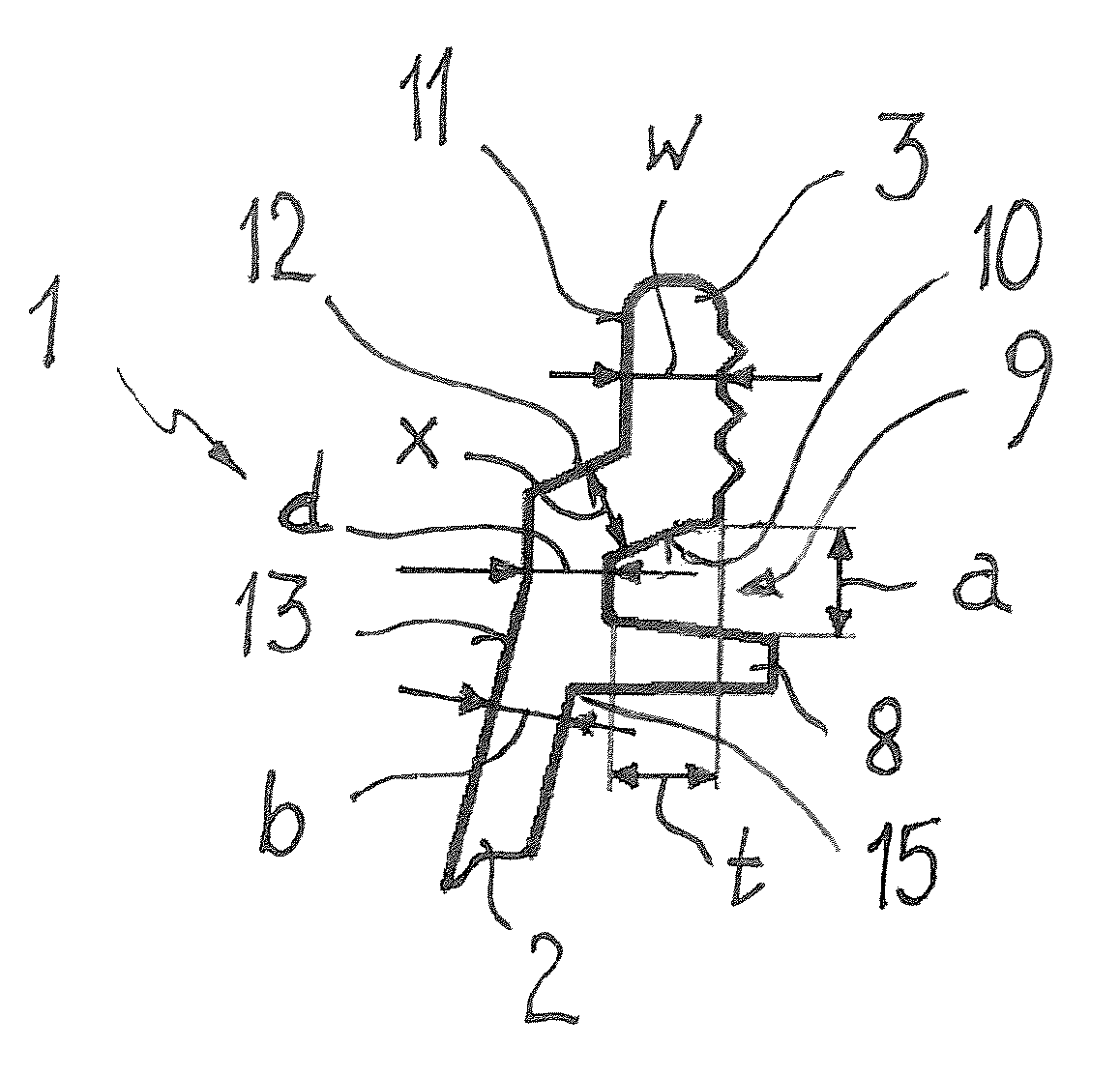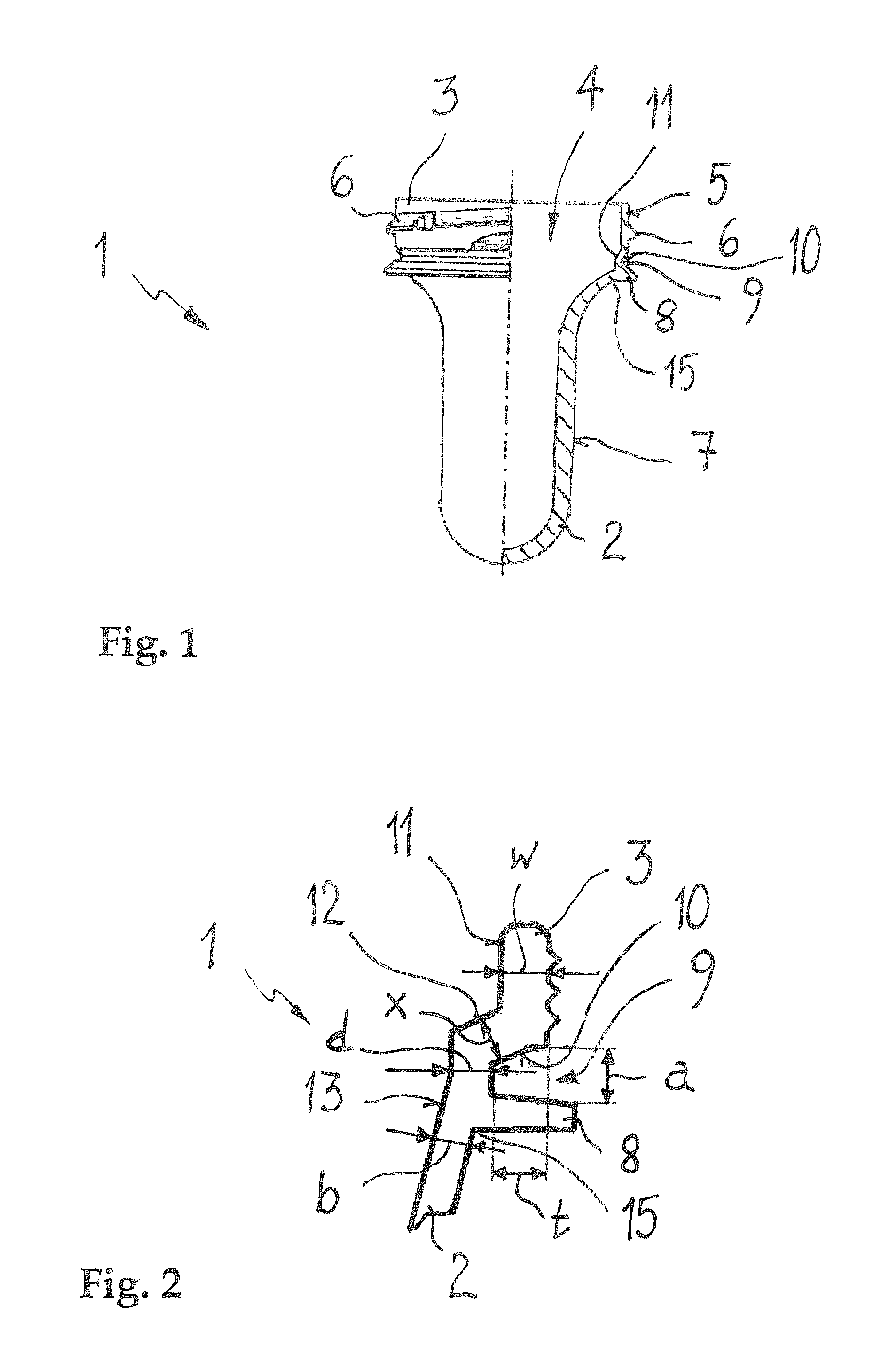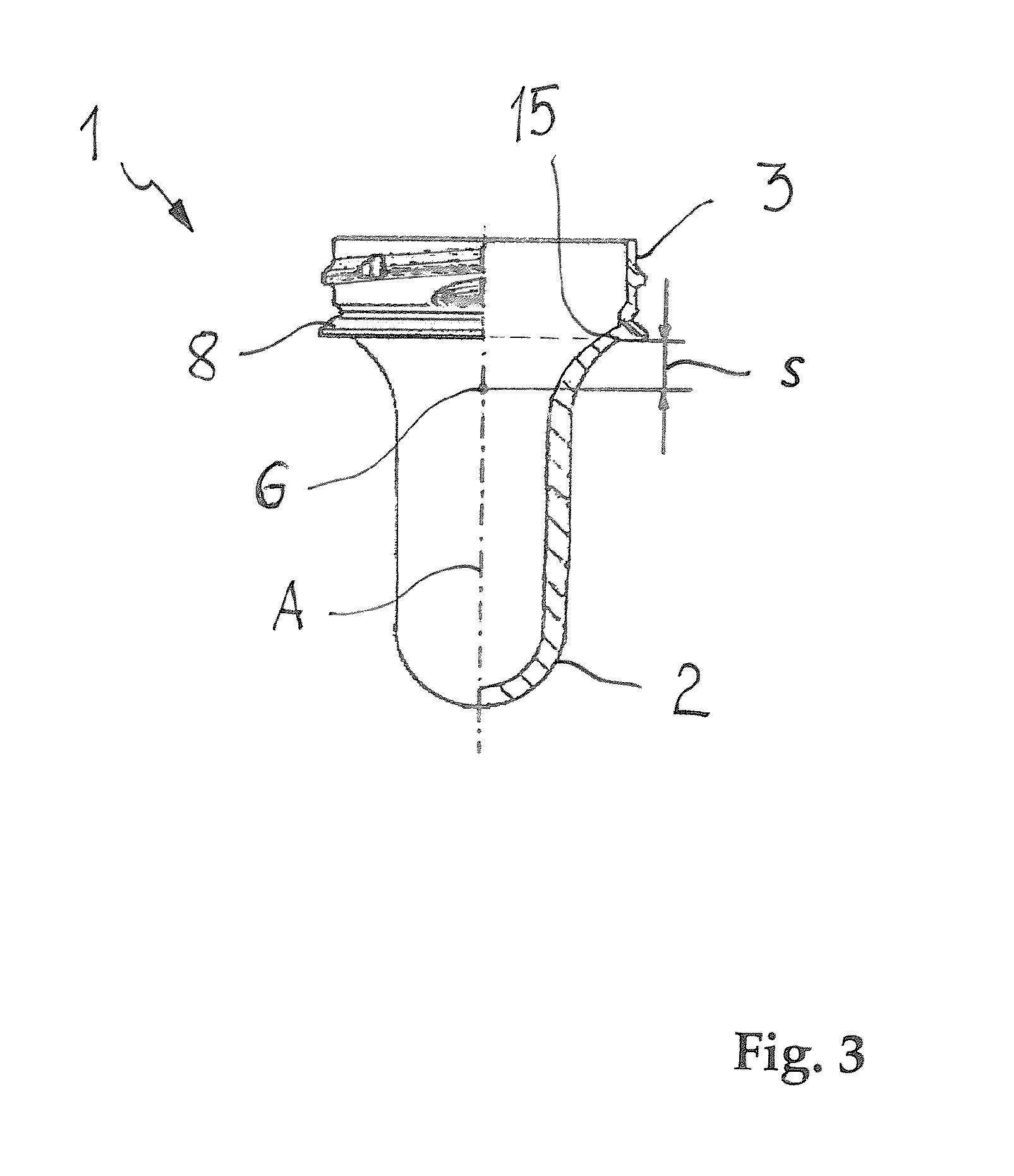Preform for producing plastic containers in a stretch-blow-moulding process
a technology of plastic containers and stretch-blow molding, which is applied in the field of preform, can solve the problems of increasing the overall cost of equipment, unsatisfactory state, and length-stretch ratio
- Summary
- Abstract
- Description
- Claims
- Application Information
AI Technical Summary
Benefits of technology
Problems solved by technology
Method used
Image
Examples
Embodiment Construction
[0018]In accordance with an exemplary embodiment, a preform is disclosed for the production of plastic containers, for example, plastic bottles, in a stretch-blow-molding method, which can reduce the number of erroneously-oriented preforms in sorting and separating devices, for example, in roll sorters. In addition, the amount of material used for the preform can be reduced. The preform can be configured to allow the production of plastic containers with standardized smaller pour openings. In this case, modifications to the stretch-blow-molding plants and to the bottling plants can be avoided. In addition, specially designed grippers for the preforms and the plastic containers produced therefrom can be eliminated. The necessary mechanical strengths and the thermal stability of the plastic containers manufactured from the preforms can remain. In addition, the preform can mass-produce with normal production methods, for example, an injection-molding method, an impact-extruding method,...
PUM
| Property | Measurement | Unit |
|---|---|---|
| radial depth | aaaaa | aaaaa |
| radial depth | aaaaa | aaaaa |
| axial width | aaaaa | aaaaa |
Abstract
Description
Claims
Application Information
 Login to View More
Login to View More - R&D
- Intellectual Property
- Life Sciences
- Materials
- Tech Scout
- Unparalleled Data Quality
- Higher Quality Content
- 60% Fewer Hallucinations
Browse by: Latest US Patents, China's latest patents, Technical Efficacy Thesaurus, Application Domain, Technology Topic, Popular Technical Reports.
© 2025 PatSnap. All rights reserved.Legal|Privacy policy|Modern Slavery Act Transparency Statement|Sitemap|About US| Contact US: help@patsnap.com



